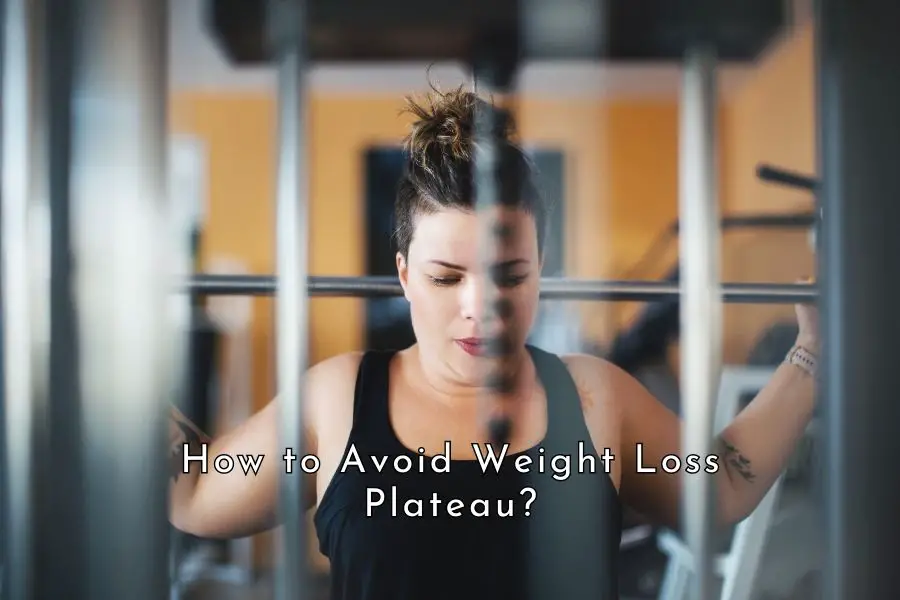Weight gain during holidays and vacations is common and expected. If you are prone to weight gain on these occasions, follow the tips in this post to avoid weight gain over this holiday season.
For people who have been on a strict version of the carnivore diet and plan to stay on this diet throughout the holiday, weight gain should not be a big concern.
However, for those of you who are on the carnivore-adjacent diet or a meat-centered diet, there is some risk of weight gain if you are not careful with your carb intake.
I hope the tips below can help you maintain or even lose some weight during your holidays and start a new year on a positive note instead of having to deal with a few extra unwanted pounds.
1. Have the right mindset
Before the holiday season begins, tell yourself that this year you are going to have a great time with your family and friends but you will do it wisely: You will be eating mostly healthy food, relaxing, and staying active but will allow yourself to eat some unhealthy food without guilt.
If there is a day when you happen to indulge yourself in too much unhealthy food, you won’t beat yourself up about it, it’s not the end of the world, it’s the festive season after all. But you will switch back the next day and stick to healthy eating principles.
Please don’t begin the holiday with the mindset that you are going to eat whatever you want and as much as you want because it’s only once a year.
You definitely don’t want to be in a situation where you are left with a big credit card debt, a few broken New Year’s resolutions, and a few pounds to lose when January rolls over.
If you think it’s hard to avoid gaining weight during the holidays, it’s even a lot harder to lose the weight gained. So, it’s best not to be in that situation in the first place.
2. Prioritize protein, fuel with fat and limit your carbs
Stick to this principle during your entire holidays: prioritize protein, fuel with healthy fat, and limit your carbs.
This principle is recommended by Dr. Ben Bikman, Ph.D., a professor of pathophysiology and biomedical scientist.
I find this principle simple, effective, easy to remember, and easy to apply in everyday life.
Proteins are highly satiating while lower in calories compared to fat. [1, 2, 3, 4, 5]
Animal fat is a great source of fuel but excess fat consumption will eventually be stored as body fat.
Carbohydrates have a low satiety point which can easily lead to overeating. Carbohydrates also spike insulin and promote fat storage. [6]
Therefore, with every meal during this holiday, fill up your plate with lots of meat (beef, lamb, goat, pork, chicken, seafood, etc.) first and eat till you are full.
Average cuts of meat will already have some fat on them. If the meat available is too lean, add some fat trimmings or butter.
After you’ve had your fill of meat, if you still have room for some party food that is high in carbs, go for it and enjoy yourself. A small slice of cake or a serving of ice cream isn’t going to do much harm. It’s unlikely that you are going to be able to eat much of those unhealthy foods by now.
Please don’t start your meal with something loaded with carbs and empty calories. Unhealthy food is likely to be followed by other unhealthy food.
In addition, eat slowly and take the time to enjoy your food, your time, and the company of your loved ones. It takes about 20 minutes for your gut to send the signal to your brain that you’ve had enough. If you eat too quickly, you are likely to overeat.
3. Limit your drinks
If you are still drinking alcohol on your carnivore diet, it’s fine to keep drinking but you do need to limit your drinks.
Alcoholic beverages are just empty liquid calories accompanied by a toxic substance. Just a few drinks can add up to 400 – 500 calories very quickly.
Because the energy from alcohol is in the form of simple sugar, your body will prioritize burning it first before digging into the fat reserve. If it is accompanied by a high-carb meal, you will have virtually no chance of burning off any fat.
Alcohol also lowers inhibition and affects your judgment, as a result, you are more likely to make poor food choices under the influence of alcohol.
In addition, alcohol also causes overeating because it increases hunger signals. [7]
So, before the holidays start, set yourself a limit on how many serves of alcohol you are going to have a day and try to stick to this limit.
If you drink, try to drink very slowly and preferably after you’ve already had your plateful of meat. If alcohol affects your judgment afterward, you won’t be able to indulge in too much unhealthy food.
4. Intermittent fasting
If you have been practicing intermittent fasting, try to stick to your feeding window for most of the holidays.
You might have one or two big days with your family or friends during the holidays when you’ll have to fit in with everybody else’s schedule.
On those days, if the big feast is at lunch, try to skip breakfast and have a big lunch with your family. You are unlikely to feel hungry for the rest of the day and skipping dinner is an option.
If the big feast is at dinnertime, try to skip breakfast and lunch. If this is not possible, stay with steaks only before the big dinner. After your dinner, try to do some gentle exercises afterward, even if it’s just a gentle stroll to burn off some calories.
For all other days, stick to your usual intermittent fasting regime, whether it’s 16:8, 18:6 or 20:4.
Food tends to be readily available all the time everywhere you go during the holidays, but you don’t have to eat it.
5. Know your trigger
If certain food causes you to overeat or triggers a binging eating episode, definitely avoid it at all costs whether it’s during a holiday or not.
Common trigger foods are processed foods that are high in sugar, salt, and unhealthy fats, such as soft drinks, chips, cakes, cookies, and pies. [8]
In addition, for some people, alcohol could be a trigger. One glass of wine can lead to copious drinks shortly after.
Cheese is another food that is very hard to portion control. A slice of cheese can mean a quick disappearance of a whole cheese wheel later.
If you know your trigger, give yourself a pep talk before the holidays and stay away from them the best you can.
My trigger used to be cookies. One cookie often led to four or five cookies. I knew this and it was much easier for me to not have the first cookie than to try to stop after the first one.
6. Plan ahead
If you organize a party at home, you can control the amount of unhealthy food you serve.
Follow the above principle: prioritize protein, fuel with healthy fat, and limit carbohydrates when preparing food for your party.
Fill the table with a variety of meat: roast beef, lamb leg, turkey, ham, lobsters, shrimp, scotch eggs, smoked salmon, etc. Have a variety of traditional Christmas treats that you and others enjoy but limit the quantity.
If you are going to a party where other people are in charge, as mentioned above, always eat meat first until you are full and then sample other festive foods if you desire. With this strategy, you won’t feel deprived at all.
Having a big steak before going to a party is another strategy. Going to a party when you are hungry will increase the likelihood of indulging in unhealthy food. If you already feel satiated beforehand, you are less likely to be tempted.
7. Stick to your exercise routine and move a lot
Stick to your regular exercise routine during the holidays. In addition to burning those extra calories, it will help maintain your muscle mass which can have a positive impact on your metabolism.
As you will have plenty of free time during the holidays, see if you can even increase your exercise volume. It doesn’t have to be spending a longer time in the gym. Try anything that keeps you moving: a walk in the bush, a walk in the snow, a swim in the ocean, a bike ride, or an outdoor game with your family.
Stick to your regular sleep routine too. Some studies have found an association between poor sleep quality and insufficient sleep and the risks of being overweight and obese. [9, 10, 11, 12, 13]
Whether you choose to believe in the findings of those observational studies or not, getting sufficient sleep has many health benefits.
8. Control your stress
It’s your holidays, spend as little time as you can on food preparation and other frivolous things and instead spend a lot of “Me Time” and do things that you enjoy.
Stress can cause weight gain and you want to lower your stress, not increase your stress during the holidays.
Plan ahead and make time for yourself to do things that you enjoy and help you relax. For example, meditate, practice yoga, get a massage, practice deep breathing, go for a nature walk, write a gratitude journal, take a warm bath, read a book, listen to your favorite music, and watch a movie.
There is some evidence that the lack of sunlight can have a negative impact on your mood. [14, 15, 16]
If you suffer from seasonal affective disorder and it’s wintertime during your holidays, insufficient sun exposure may cause you to seek comfort in food, especially when you are in an environment where there is an abundance of unhealthy food and everyone around you are gorging themselves like there’s no tomorrow.
In this case, try to spend as much outdoor time as possible, expose more skin, and don’t cover up with sunscreen. Sunscreen is full of harmful substances and the winter sun is very weak. If you are worried about skin cancer risk, wear a hat and avoid peak sunlight hours instead.
9. Weigh yourself regularly
You can’t manage what you can’t measure.
If you have a record of gaining a lot of weight during holidays in the past, it’s not a bad idea to weigh yourself regularly. It’s your choice whether you want to do it daily or every few days.
One or two pounds are much easier to get rid of than 10 to 12 pounds.
If you find that you’ve gained 1 or 2 pounds, don’t stress about it but do something about it straight away. For example, switch to one meal a day, cut out all carbs and snacks for a few days, and boost your exercise.
Being overweight or obese never happens overnight, it’s usually a few pounds a year accumulating over decades until it becomes a big problem. So, the earlier you are aware of the problem and the sooner you deal with it, the less hard it becomes.
10. Enjoy your holidays even if you stuff up
If you happen to overindulge for a day or two during the holidays and eat a lot of cake, have a lot of ice cream, or drink a little too much, forgive yourself and stay positive, it’s no big deal. You just have to start over again the next day, remember the principle of prioritizing protein, fueling with fat, and limiting carbs and stick to it as much as you can.
A stuff-up here and there is not a reason to say damn it, I’m going to just eat whatever I want and I will start dieting again in January. Well, guess what, the same thing could happen when you start again in January. And by then you may have a bigger problem to deal with.
All you have to do is to learn from your mistakes and avoid making them again in the future. Fall seven times and stand up eight and you will still be the winner.
If you have been making lifestyle changes and still aren’t getting the results you want, it may be time to consult a healthcare professional.
A specialist doctor can customize a realistic diet and exercise plan to your goals. Sometimes prescription medications for weight loss can be helpful in achieving the much needed initial weight loss that will motivate you to keep going.
For example, Drip Hydration, a medical facility in Nashville can prescribe Wegovy, a FDA-approved weight loss medication to be used in conjunction with lifestyle changes to help you reach your weight loss goals.
Losing weight and keeping it off is never easy. However, as mentioned above, it’s important to stay positive and never give up. Sometimes, it’s the last key in the ring which opens the door.
Disclaimer: The information in this post is for reference purposes only and is not intended to constitute or replace professional medical advice. Please consult a qualified medical professional before making any changes to your diet or lifestyle. Please check out our disclaimer for more detail.
Photo credit: Inga Seliverstova on Pexels





